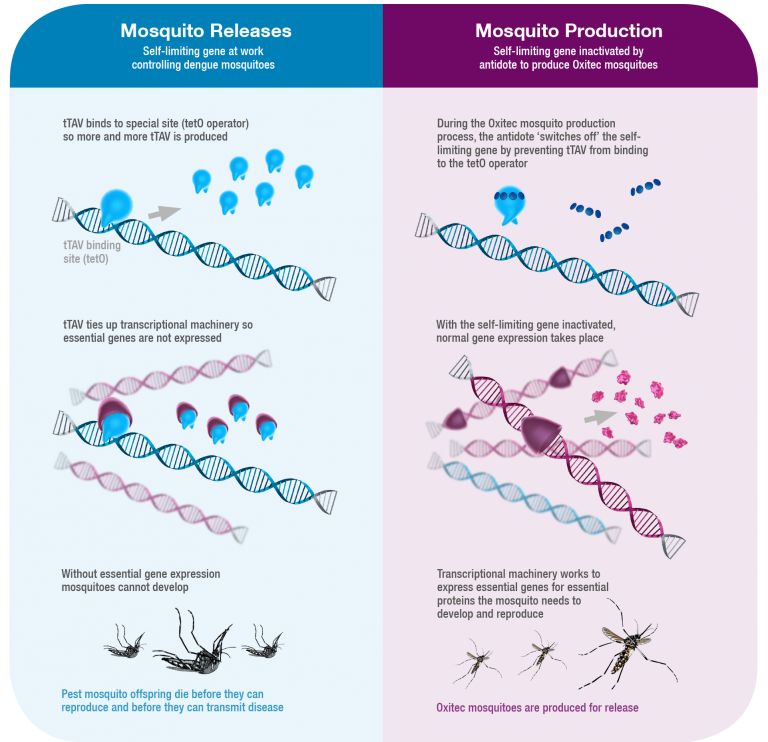Oxitec is preparing to start trials testing its solution to reduce the population of disease-transmitting insects in India with its own genetically modified mosquitoes.
Oxitec, a spin-out from Oxford University, engineers mosquitoes to reduce their populations in areas where they spread infectious diseases. After success in Brazil and the Cayman Islands, the company is now heading to India to fight dengue and chikungunya. It has just announced the launch of outdoor caged trials of its Friendly Aedes mosquito in partnership with Gangabishan Bhikulal Investment and Trading (GBIT) in Dawalwadi.
Dengue is estimated to infect 5.8 million people in India every year, costing the country over $1B annually. Outbreaks of chikungunya, a viral disease for which no treatment is available, have been increasingly reported in India. Both diseases are transmitted by local populations of Aedes aegypti mosquitoes, and here is where Oxitec comes in.
The biotech has developed OX513A, a genetically modified strain of male A. aegypti mosquitoes that carry a deadly gene. Lab-bred mosquitoes are provided with an antidote that lets them survive when released, but their offspring fall prey of the inherited gene before being able to mate.

First released in Brazil, Oxitec’s mosquitoes have demonstrated to reduce the local populations by more than 90%, whereas insecticides only affect 30%. In addition, this strategy only targets a specific mosquito strain and does not produce any toxic compounds that could affect their predators, making Oxitec’s the most eco-friendly solution so far to control the spread of infectious diseases.
The World Health Organization (WHO) itself backed the engineered mosquitoes during last year’s Zika outbreak. The company released 10,000 of them in one of the Cayman Islands, drastically reducing the local mosquito population.
While its mosquitoes continue fighting disease, Oxitec is now exploring expanding its technology to flies. The Mediterranean fruit fly, Ceratitis capitata, is one of the most destructive agricultural pests, causing billions of dollars in damage and affecting over 250 types of fruits, nuts and vegetables. Oxitec has carried out trials in Greece and Morocco and is now preparing for its first open field trial.
The use of GM organisms is still controversial, although surveys have revealed that the majority of residents in the locations where Oxitec released mosquitoes supported the solution. In many aspects, this strategy is less invasive and has proved more effective than any other solutions currently available to control the spread of infectious disease.
Cover image: Bibi ka Maqbara in Aurangabad, India, 50km away from the location where Oxitec mosquitoes will be trialed. Picture by Bankrx/Shutterstock.com.





